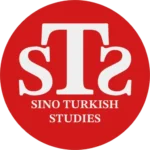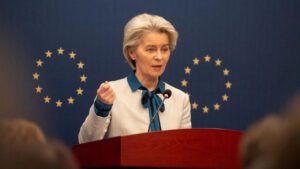On November 7, 2019, French President Emmanuel Macron declared that NATO had experienced “brain death”, pointing to the lack of coordination among its member states.
A similar historical observation was made by retired U.S. Colonel Douglas Macgregor. He argued that NATO had become irrelevant and that Europe would soon build new security arrangements rooted in historical and cultural ties. Stressing that Russia posed no threat, Macgregor emphasized that Germany must prepare for a post-NATO era.
Former French Ambassador to the U.S., Gerard Araud, also wrote in Le Point on August 24: “We are living in a period where Western supremacy is coming to an end. The reason is the slow but steady shift of global power balances against the West, and the fact that the American policeman—the leader and guardian of this supremacy—no longer wants to play that role.” Araud added that the order established in 1945 was collapsing piece by piece: “What will replace it is unknown, but it will certainly not be dominated by the West.”
THE DEEPENING U.S.-EUROPE RIFT
At the latest NATO summit in The Hague, the Netherlands, member states pledged to allocate 5% of their GDP annually to defense spending by 2035, including key security needs. The final declaration also reaffirmed commitments to Ukraine: “Allies reiterate their sovereign commitments to provide support to Ukraine. Ukraine’s security contributes to our own security. Accordingly, defense spending calculations will also include direct contributions to Ukraine’s defense and defense industry.”
Yet only a few months later, Putin and Trump met in Alaska. After the meeting, Trump announced the recognition of Crimea as Russian territory and declared Ukraine’s NATO membership impossible. Soon after, he met Zelensky and European leaders at the Oval Office. The photo from this meeting symbolized the deepening divide between the U.S. and Europe.
In Foreign Affairs on August 12, Hugh Eakin interviewed historian Margaret MacMillan, asking: “Why is America acting alone?” MacMillan explained that Trump’s “Make America Great Again” doctrine fostered isolation: “We don’t need other nations. We can choose who to deal with. We are not obliged to work with anyone.” She emphasized that the U.S. no longer saw Europe as an ally, and that Trump’s pressure for higher defense budgets undermined trust within NATO. According to MacMillan, alliances cannot function through unilateral steps—signaling the disintegration of the Atlantic order.
All this demonstrates the decline of Atlantic power.
A VISIT TO STRENGTHEN THE GREAT EURASIAN PARTNERSHIP
Amid these developments, the Shanghai Cooperation Organization (SCO) will convene in Tianjin on August 31–September 1, with over 20 heads of state and international representatives, including Turkey. Leaders will review SCO’s achievements, set future directions, and push the organization toward becoming a tightly interwoven community with a shared destiny.
An interesting detail is that Putin will remain in China for four days—his longest foreign trip since 2014. This is significant. Following the Alaska meeting, there was speculation about a “new Yalta,” where the U.S. and Russia might divide spheres of influence, with Washington seeking to neutralize or pull Moscow to its side against China.
But Putin and Xi Jinping had already laid out their vision of the Great Eurasian Partnership on February 6, 2022. It included:
- A people-centered new order.
- A multipolar world.
- Building the Great Eurasian Partnership.
- Genuine democracy based on national sovereignty.
- Opposition to color revolutions and terrorism.
- Digital sovereignty.
- Resistance to sanctions and economic inequality.
The emphasis was on cooperation without prohibitions or restrictions. Putin’s four-day visit will not weaken Sino-Russian ties; instead, it will deepen them, strengthening the Great Eurasian Partnership. Dreams of Atlanticists to detach Russia from China will not materialize.
TURKIYE CANNOT SUCCEED THROUGH BALANCING
The crucial issue here is Turkiye’s position. Its balance policy is at a breaking point. Rather than keeping Turkiye balanced, this approach merely props up the declining Atlantic powers against the rising Eurasian forces.
Turkiye must decide—and this decision has the power to upend global balances. Turkiye’s exit from NATO and integration into BRICS and SCO as part of the Great Eurasian Partnership is inevitable. Such a step would serve as a lever for the world, accelerating both the dissolution of the Atlantic system and the rise of Asian civilization.





